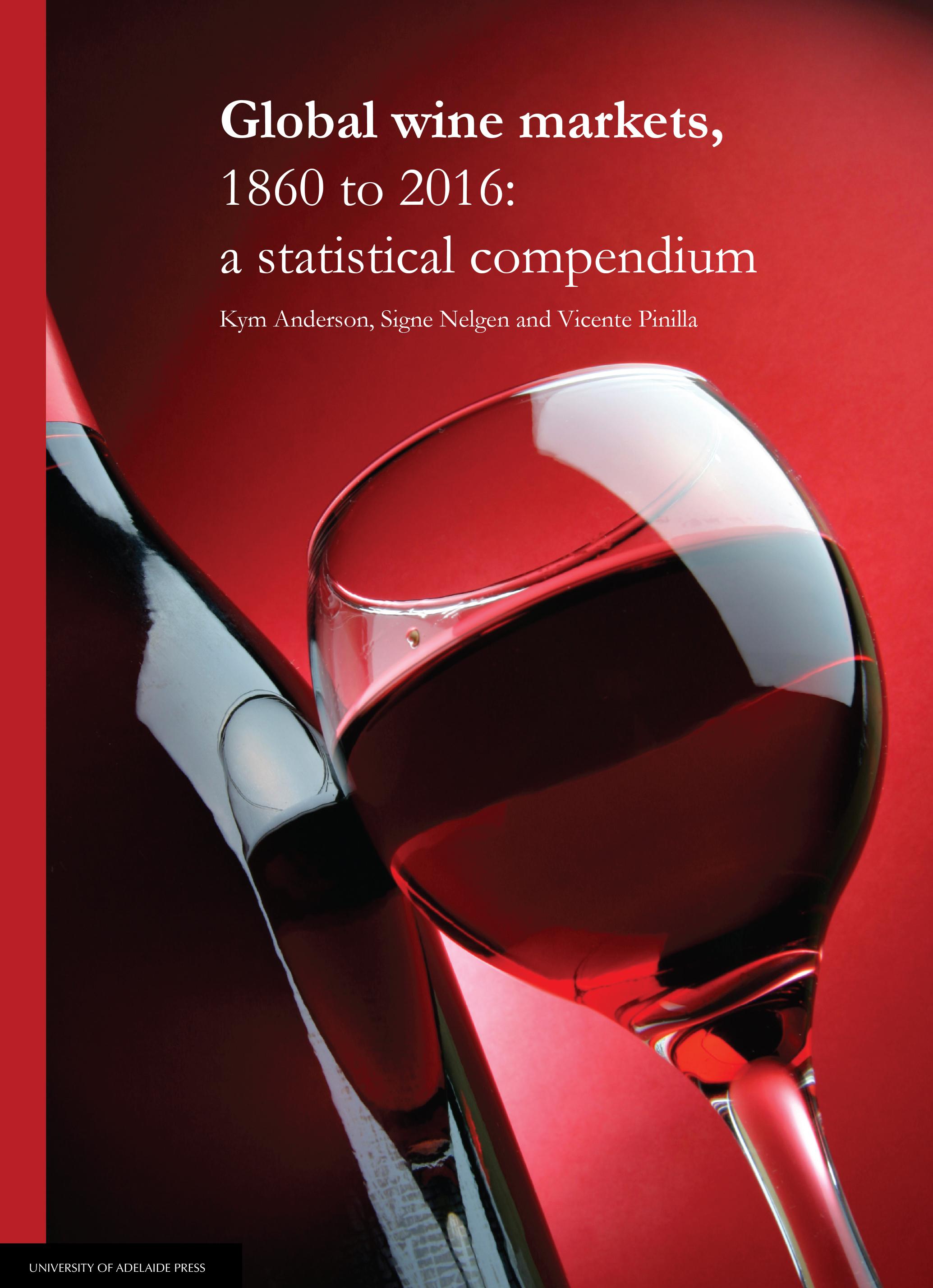Global wine markets, 1860 to 2016

A statistical compendium
by Kym Anderson, Signe Nelgen and Vicente Pinilla
A$77.00 | $US59.95 | 2017 | Paperback | 978-1-925261-65-3 | 582 pp
FREE | 2017 | Ebook (PDF) | 978-1-925261-66-0 | 582 pp
DOI: https://doi.org/10.20851/global-wine-markets

Paris, July 2018
Global wine markets, 1860-2016 was awarded one of the best books published world-wide in wine economics by the International Organisation of Vine and Wine.
Until recently, most grape-based wine was consumed close to where it was produced, and mostly that was in Europe. Despite the huge growth in inter-continental trade, investment and migration during the first globalization wave that came to a halt with World War I, it was not until the 1990s that the export share of global wine production rose above the 5-12% range in which it had fluctuated for centuries. The latest globalization wave has changed that forever. Now more than two-fifths of all wine consumed globally is produced in another country. Europe’s dominance of global wine trade has been diminished by the surge of exports from the Southern Hemisphere and the United States. New consumers have come onto the scene as incomes have grown, eating and drinking habits have changed, and tastes have broadened. Asia has emerged as an important consuming region, and in China that has stimulated the development of local production that, in volume terms, already rivals that of Argentina, Australia, Chile and South Africa.
This latest edition of global wine statistics not only updates data to 2016 but also adds another century of data. The motivation to assemble those historical data was to enable comparisons between the current and the previous globalization waves. This unique database reveals that, even though Europe’s vineyards were devastated by vine diseases and the pest phylloxera from the 1860s, most ‘New World’ countries remained net importers of wine until late in the nineteenth century. Some of the world’s leading wine economists and historians have contributed to and drawn on this database to examine the development of national wine market developments before, during and in between the two waves of globalization. Their initial analyses cover all key wine-producing and -consuming countries using a common methodology to explain long-term trends and cycles in national wine production, consumption, and trade. They are available in Wine Globalization: A New Comparative History, edited by Kym Anderson and Vicente Pinilla (Cambridge University Press, February 2018).
About the authors
Kym Anderson is the George Gollin Professor of Economics and foundation Executive Director of the Wine Economics Research Centre at the University of Adelaide in South Australia, and a Professor of Economics in the Crawford School of Public Policy at the Australian National University in Canberra.
Signe Nelgen is an agricultural and trade economist who, as a doctoral student at the University of Adelaide, was co-author with Kym Anderson of the previous issue if this volume, published in 2011.
Vicente Pinilla is Professor of Economic History at the University of Zaragoza in northern Spain.
